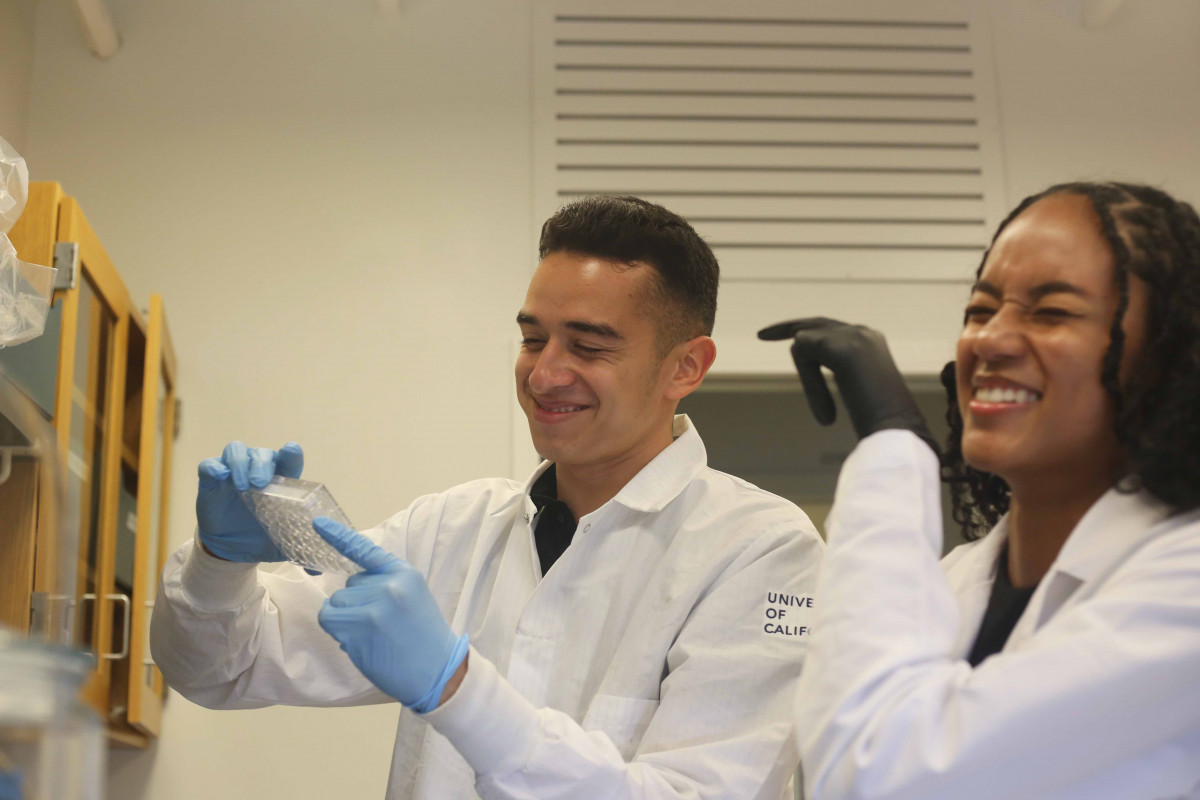Our MCB community members host or participate in many activities, programs, and organizations, serving current and prospective MCB community members. Here is a sampling list of these programs for students and postdocs. Additional information can be found in the Berkeley Supportal.

Alex and Cydni, from Hampton University, looking at cell-culture plates as part of the MCB Amgen Scholars Summer Research Program.